S. Korea urges N.Korea to halt hostility
South Korea today rejected Northern demands for an apology over remarks by its top general on a nuclear attack scenario.
Wednesday, 02.04.2008.
12:04

South Korea today rejected Northern demands for an apology over remarks by its top general on a nuclear attack scenario. It also told Pyongyang to stop raising tensions on the peninsula. S. Korea urges N.Korea to halt hostility The Defense Ministry message was Seoul's first official reaction to a series of recent hostile moves and angry rhetoric by Pyongyang. The ministry said in a statement that it sent a radio message to the North's chief representative to inter-Korean military talks, Lieutenant-General Kim Yong-Chol. Kim on Saturday had demanded an apology for remarks by South Korea's new chairman of the Joint Chiefs of Staff, General Kim Tae-Young made in parliament last week. In answering a question, the general had said the South would strike the North's nuclear sites should the communist country attack it with nuclear weapons. The North interpreted his comments as hinting at a preemptive military strike. On Sunday the hardline communist state's official media repeated claims that Seoul was planning a preemptive attack and threatened to turn South Korea into "ashes" in response. On Tuesday official media launched a barrage of insults against new President Lee Myung-Bak, terming him a U.S. sycophant, a traitor and a charlatan. In the past week the North has also expelled South Korean officials from a joint industrial complex, test-fired missiles and accused Seoul of breaching a disputed sea border. The defence ministry message said the North misinterpreted the remarks. "Our side has sincerely upheld the non-aggression agreement between the South and the North and this position will not change in the future," Seoul's chief delegate to the military dialogue, Major-General Kwon Oh-Sung, said in the message to his counterpart. "Your intentional slander and fostering of tension do not help ensure peace and stability on the Korean peninsula, and we urge you to immediately stop such activities." The South is always ready to talk about peace and easing tensions, it added. President Lee, a conservative who took office February 25, has angered the North by adopting a tougher line on relations after a decade-long "sunshine" engagement policy under liberal presidents. He says he will link economic aid to the North's progress in nuclear disarmament and will raise its widely-criticised human rights policy. The vitriolic criticism of Lee was the first since he took office. Local media said it was the first named attack on a Seoul president in eight years. Analysts speculate that Pyongyang is trying to test Lee and weaken his support before parliamentary elections next week, and before a summit with President George W. Bush starting April 18 in Washington. The rise in tensions comes as six-nation negotiations on scrapping the North's nuclear weapons program remain stalled. U.S. Assistant Secretary of State Christopher Hill said Pyongyang's "barrage" of criticism of Seoul would only strengthen the U.S.-South Korean alliance. Hill is visiting Seoul to try to get nuclear talks moving but also discussed the North's remarks with officials. "We agreed that these were frankly rather unhelpful statements except in one area -- they are very helpful in bringing the U.S. and ROK (South Korea) closer together," he said, adding there was no need to overreact. Despite the tensions a six-member civilian delegation from South Korea arrived in the North on Wednesday. It plans to discuss the annual joint celebration of the 2000 inter-Korean summit with Pyongyang officials, according to South Korean organizers quoted by Yonhap news agency.
S. Korea urges N.Korea to halt hostility
The Defense Ministry message was Seoul's first official reaction to a series of recent hostile moves and angry rhetoric by Pyongyang.The ministry said in a statement that it sent a radio message to the North's chief representative to inter-Korean military talks, Lieutenant-General Kim Yong-Chol.
Kim on Saturday had demanded an apology for remarks by South Korea's new chairman of the Joint Chiefs of Staff, General Kim Tae-Young made in parliament last week.
In answering a question, the general had said the South would strike the North's nuclear sites should the communist country attack it with nuclear weapons.
The North interpreted his comments as hinting at a preemptive military strike.
On Sunday the hardline communist state's official media repeated claims that Seoul was planning a preemptive attack and threatened to turn South Korea into "ashes" in response.
On Tuesday official media launched a barrage of insults against new President Lee Myung-Bak, terming him a U.S. sycophant, a traitor and a charlatan.
In the past week the North has also expelled South Korean officials from a joint industrial complex, test-fired missiles and accused Seoul of breaching a disputed sea border.
The defence ministry message said the North misinterpreted the remarks.
"Our side has sincerely upheld the non-aggression agreement between the South and the North and this position will not change in the future," Seoul's chief delegate to the military dialogue, Major-General Kwon Oh-Sung, said in the message to his counterpart.
"Your intentional slander and fostering of tension do not help ensure peace and stability on the Korean peninsula, and we urge you to immediately stop such activities."
The South is always ready to talk about peace and easing tensions, it added.
President Lee, a conservative who took office February 25, has angered the North by adopting a tougher line on relations after a decade-long "sunshine" engagement policy under liberal presidents.
He says he will link economic aid to the North's progress in nuclear disarmament and will raise its widely-criticised human rights policy.
The vitriolic criticism of Lee was the first since he took office. Local media said it was the first named attack on a Seoul president in eight years.
Analysts speculate that Pyongyang is trying to test Lee and weaken his support before parliamentary elections next week, and before a summit with President George W. Bush starting April 18 in Washington.
The rise in tensions comes as six-nation negotiations on scrapping the North's nuclear weapons program remain stalled.
U.S. Assistant Secretary of State Christopher Hill said Pyongyang's "barrage" of criticism of Seoul would only strengthen the U.S.-South Korean alliance.
Hill is visiting Seoul to try to get nuclear talks moving but also discussed the North's remarks with officials.
"We agreed that these were frankly rather unhelpful statements except in one area -- they are very helpful in bringing the U.S. and ROK (South Korea) closer together," he said, adding there was no need to overreact.
Despite the tensions a six-member civilian delegation from South Korea arrived in the North on Wednesday. It plans to discuss the annual joint celebration of the 2000 inter-Korean summit with Pyongyang officials, according to South Korean organizers quoted by Yonhap news agency.
















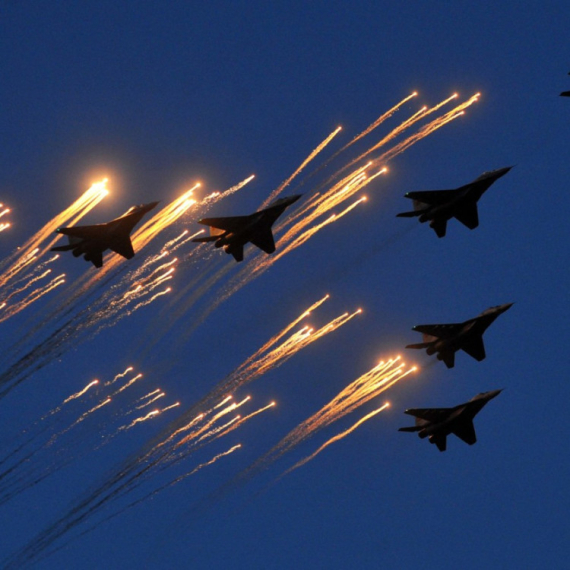
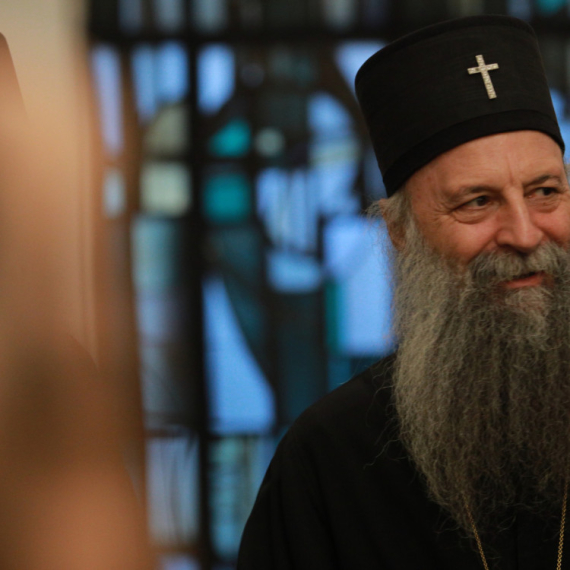
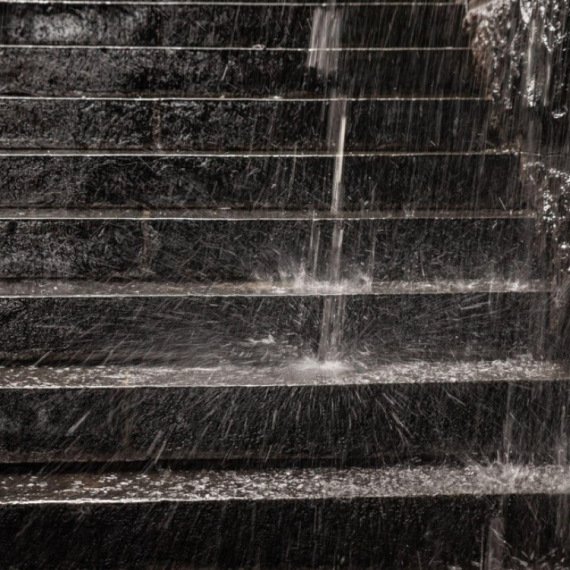









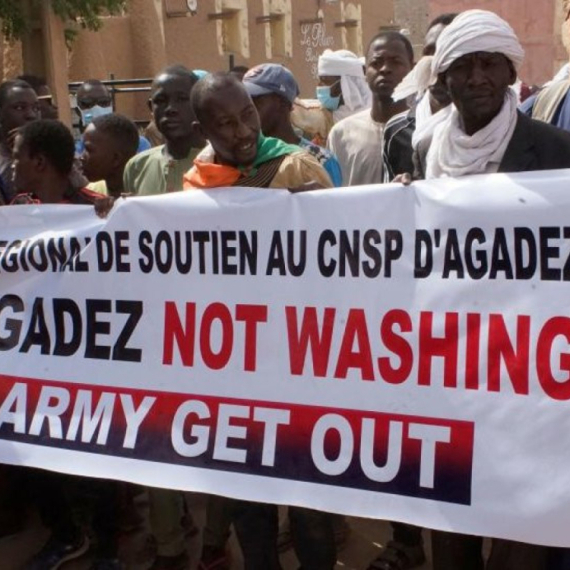
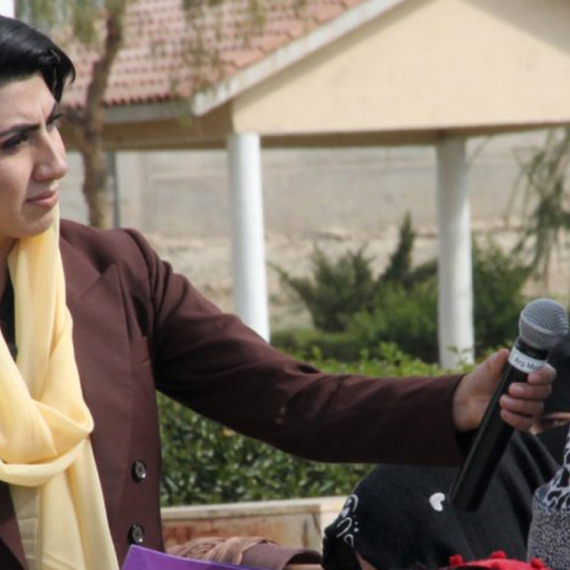
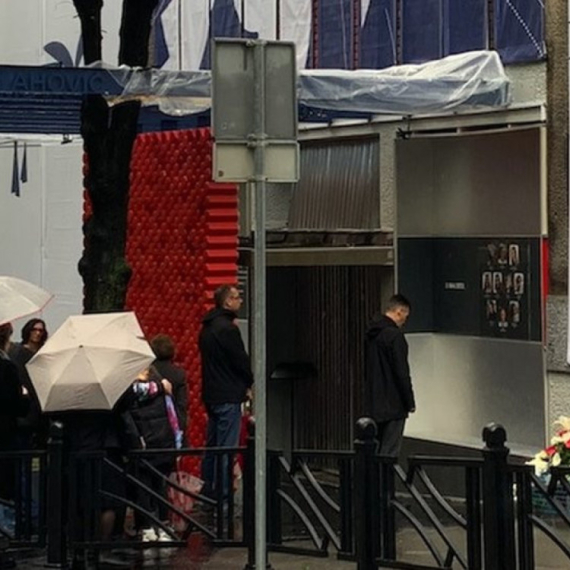
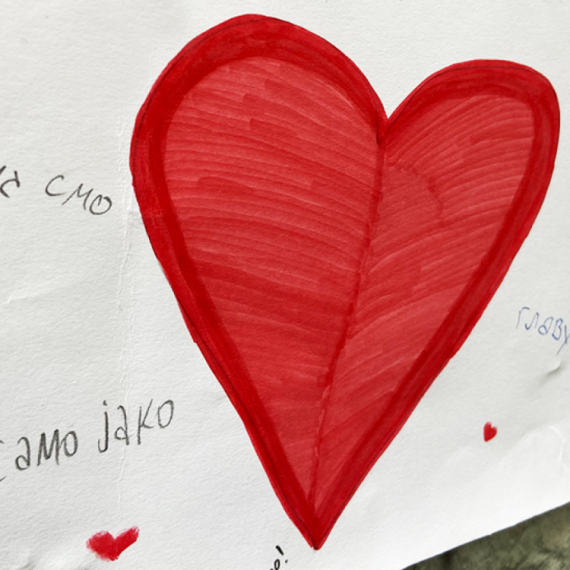


Komentari 0